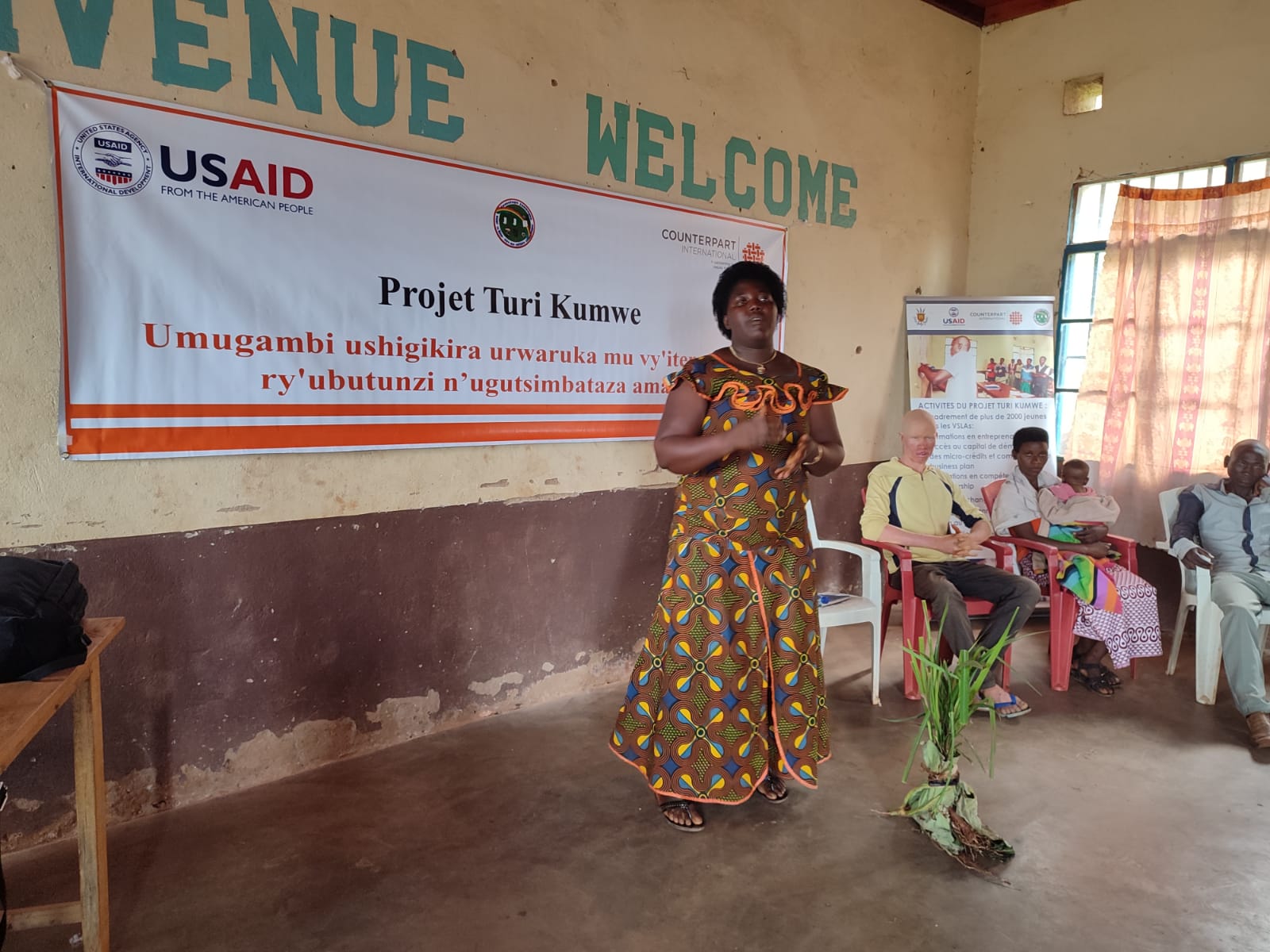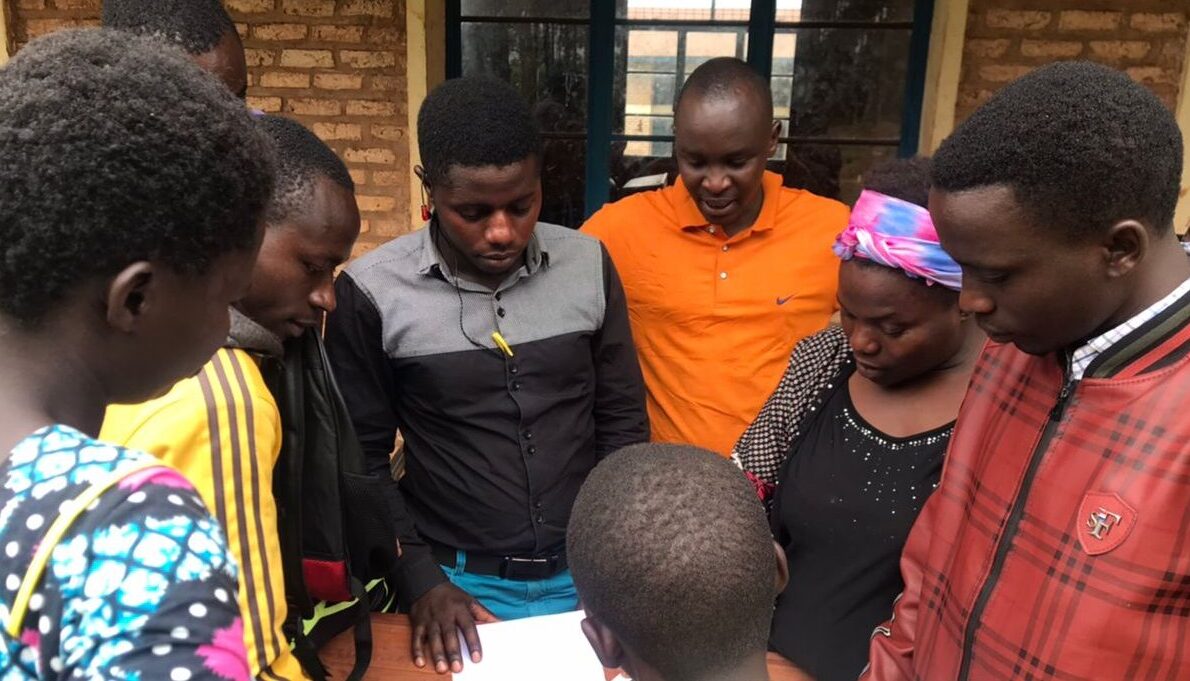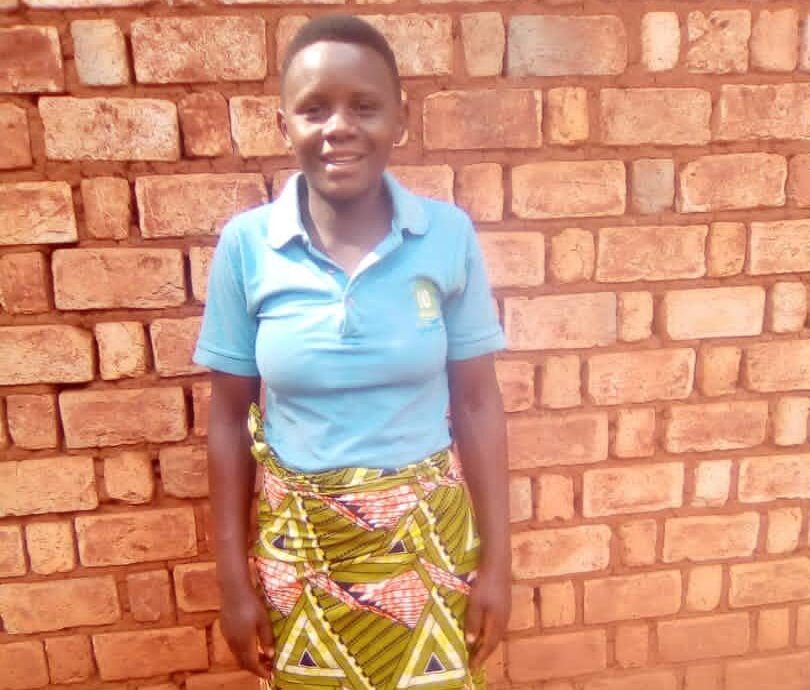Turi Kumwe (We Are Together)
Political violence jeopardizes social cohesion and livelihoods of youth
Burundi is a young nation with two-thirds of the population under the age of 25. After the end of its 10-year civil war, Burundi continues to face challenges in establishing long-term peace and stability within its borders. Ethnic divisions between Hutu and Tutsi populations, coupled with political and electoral unrest, poverty and land conflict, continue to plague efforts to establish social cohesion, and few economic opportunities for young people put them at a higher risk of engaging in political violence. With limited opportunities for youth to develop a positive sense of purpose and mutual understanding, young people have been drawn into local conflicts through political groups.

A woman presents her business plan at the competition in Nyamurenza, Burundi.
Engaging Burundian youth in peacebuilding training and economic opportunities
The People-to-People Reconciliation Program, known locally as “Turi Kumwe” (“We Are Together”), strengthened the level of engagement by Burundian youth in peacebuilding opportunities, as well as improved their economic opportunities.
Through peacebuilding and violence prevention work, Counterpart helped young people begin to change their perceptions of the “other,” reduce “us-versus-them” mentalities, and build mutual understanding. The project helped young people of diverse political, economic, social, and ethnic backgrounds understand that they share common challenges and appreciate how diversity and inclusion can improve targeted development outcomes that would benefit all of them. Inter-commune exchanges further facilitated relationship-building among youth outside of their traditional interactions that forged resilient social ties to lay the foundations for sustainable inter-communal reconciliation.
Counterpart’s interventions also helped young people improve their pursuit of economic opportunities through strengthening connections with village savings and loan associations (VSLAs), increasing their sense of purpose, solidarity between members from different backgrounds, and contribution to their families’ and communities’ well-being.
These interventions were designed to reduce youth competition and the risk of participating in destructive activities or seeking financial support from violent groups. VSLAs also provided young people with safe spaces for interaction between diverse groups around a shared objective, supporting broader community peacebuilding, mutual understanding, and reconciliation.
The project helped improve the livelihoods and peacebuilding skills of youth and their enabling environments, thereby reducing the risk of youth becoming involved in conflict and contributing to peace and stability in Burundi.
Youth empowerment improves livelihoods
- Since 2020, Turi Kumwe formed over 60 inclusive village saving and loan associations that have pooled savings worth $55,000 and issued loans worth $70,000.
- Counterpart trained nearly 2,000 youth in a range of soft and hard skills.
- In the final evaluation, the project found there was a 38 percent increase in employment among participants, and 95 percent stated that the model enabled them to undertake an income generating activity and diversify their income.
- 97 percent of respondents in the final evaluation agreed that the project contributed to strengthening social cohesion and reconciliation, and there was a 70 percent improvement in youth’s attitudes towards gender equality.
- 92 percent of respondents in the final evaluation agreed that the Turi Kumwe project strengthened women’s leadership and community participation.





